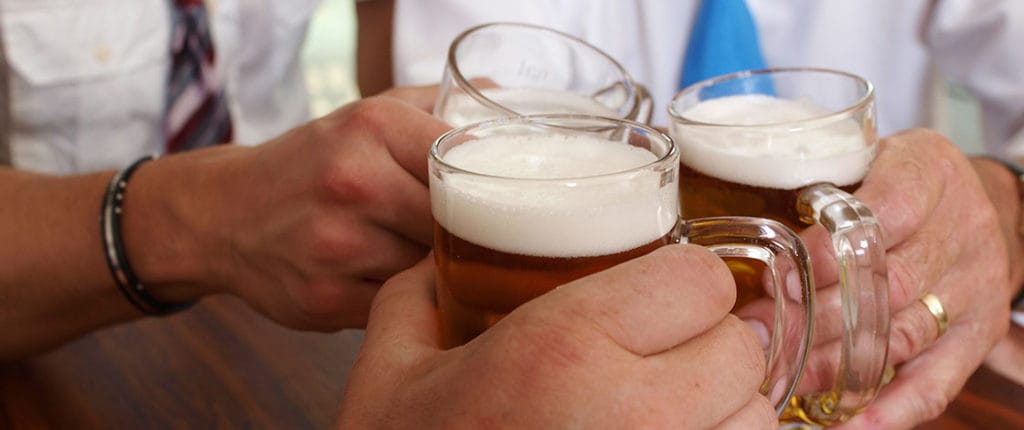The second in a two-part series. Part One: How Your Behavior Influences Your Child You child’s future relationship with alcohol is cultivated in the home. You may be unwittingly setting the stage for future alcohol problems with these behaviors. Drunkenness and irresponsibility with alcohol. We’re all human, we all have a little too much at times, and we all laugh it off. But while you may laugh about it in front of your kids, and outwardly they may think it’s great to have such a fun parent, internally, they are processing the experience quite differently. They are seeing that their “leader” lacks good judgment and restraint – that they are given to cravings over principles. You send a powerfully negative message to your teen about upright conduct and wise decision-making when you engage in overconsumption. Although it may be a rare occasion of indulgence, you are crafting his or her view of what adult drinking looks like. You also have little ground to stand on when he turns up drunk. If you do it, why can’t he? Similarly, your teen is watching your behaviors around drinking and driving. If it’s OK to get into the car after dad has had a few drinks, what will stop your daughter from getting into the car with an intoxicated date? Young people often do not have the ability to so precisely differentiate between contexts. They only see that driving with someone who has had something to drink is safe. Parent attitude toward underage drinking. Parents should carefully question their own attitudes toward underage drinking – preferably before the kids hit the teenage years. What will be your expectations for your teens? What consequences should underage drinking carry? Are you comfortable with it just as long as your kid doesn’t get caught? Are you the parent who looks the other way when your kids raid the liquor cabinet? Have you purchased alcohol for a son or daughter’s party because you wanted to be the “cool parent,” or to ensure that your teen maintains good status in the social pecking order? Do you laugh off drinking behavior as “kids will be kids”? Be warned that while you may hold a more licentious stance on the subject of underage drinking, the law does not. Underage drinking puts your child at risk for school suspension, inability to play high school sports, disqualification for academic scholarships and awards, not to mention legal repercussions. And all of this aside from the risk to bodily health. Without threatening, it is wise to help your kids understand that when they drink they are making choices that carry consequences – ones that often cannot be reversed. Success and popularity above principle. High school is dominated by the race to the top of the social, academic and athletic strata. Parents naturally want their kids to be brilliant, athletic and wildly popular. But at what cost? Popularity often comes with a price – often the sacrifice of compromising one’s own principles in favor of the reigning peer pressure. Look at your own life. Are you showing kids what is most important? Do you compromise your stated values in order to gain popularity in the community or success at work? Do you lie to get what you want? Your kids are watching you and they are applying these lessons to their own lives and circumstances. The best way to help kids combat the undertow of peer pressure is to instill in them the values that will help them rise above. When kids see that steady adherence to morals is more valuable than momentary compliance with peer pressure, they will inherently know how to make the right decisions when placed in situations that challenge their principles. Skewed visions of adulthood. Like kids trying on dresses and suits in their parents’ closet, high school is a time of “trying on” adulthood. Teens want to experiment with some of the normal, positive aspects of adulthood such as having a job, driving a car, traveling and exercising independence. These are normal rites of passage and should be encouraged. But many will also want to experiment with aspects of adulthood that are either illegal or inappropriate for their age and station in life. Wanting to be viewed as cool, daring, and sought-after, kids engage in potentially dangerous and damaging behaviors. It is the job of the parents to talk about and demonstrate what constitutes a healthy transition to adulthood. What privileges are you willing to permit and which activities are disallowed based on legality, religious convictions or your personal beliefs? Your own problem. If you or someone in your household suffers from an untreated drinking problem, you increase your child’s likelihood of the same by a wide margin. If you care about your child’s future, you will get the help that you need. Far from bringing shame or stigma to your family or making alcohol a bigger issue than it should be, you are safeguarding your kids, and showing them what is normal and not normal when it comes to alcohol consumption. While parents don’t want to be rule-mongers, kids want and need to know where the boundaries are. Work with your kids to teach them the right way, and then hold yourself to the same standard. They will learn to respect you, respect alcohol, and respect themselves.

